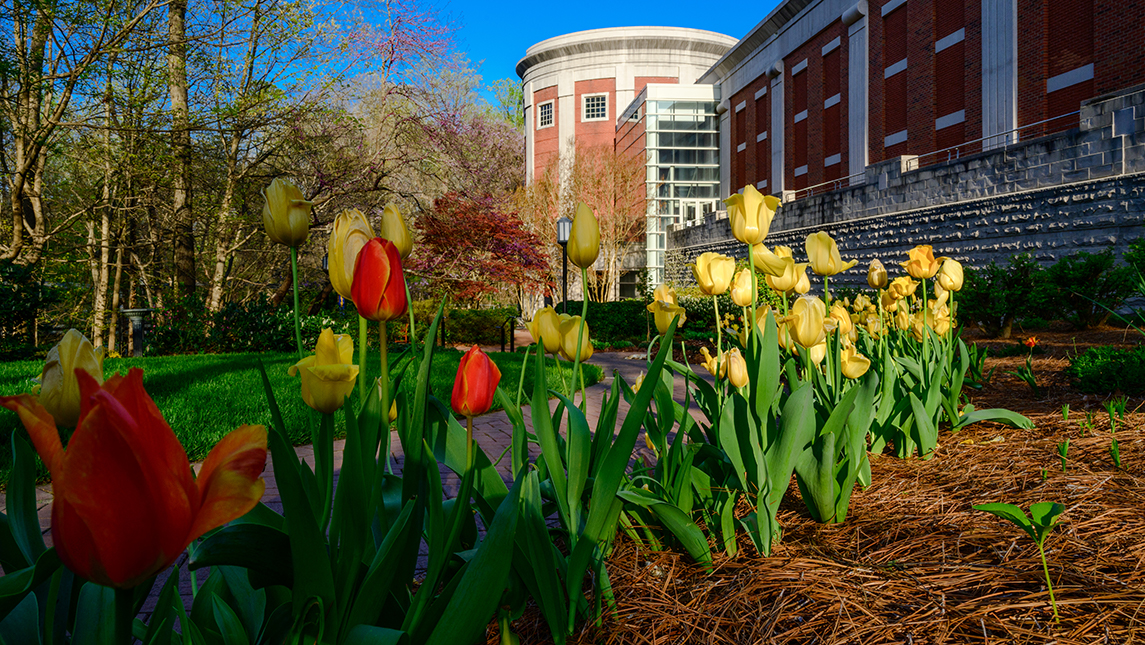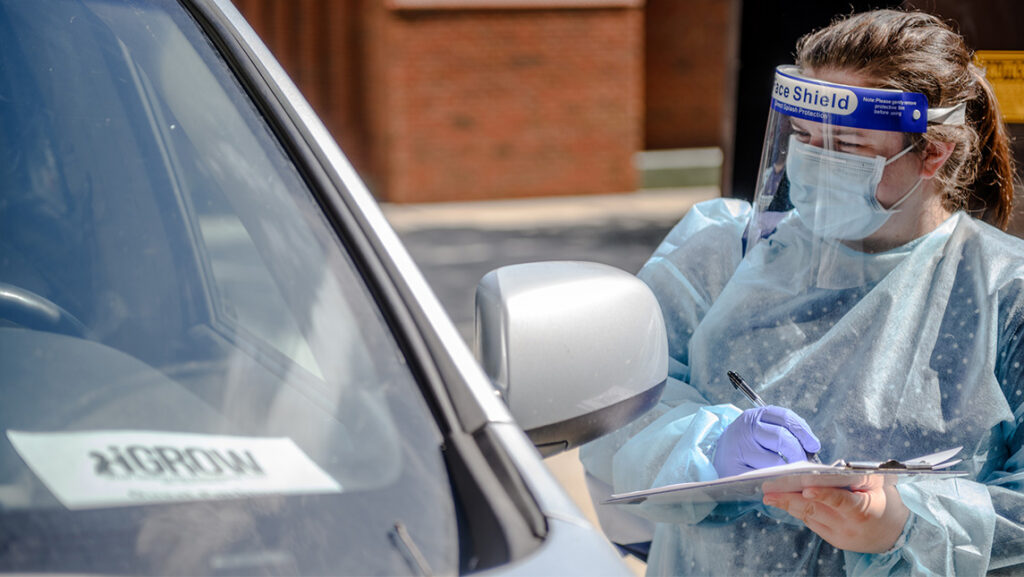
UNC Greensboro is recognized as one of the most environmentally-friendly universities in the U.S. by the Princeton Review and Sierra Club Cool Schools, with high ratings from AASHE’s STARS and the United Nations. This is thanks to the combined efforts of the University’s campus community, which makes sustainability a priority.
“At UNCG, sustainability means conducting academics, operations, and outreach with careful attention to the enduring interconnectedness of social equity, the environment, the economy, and aesthetics,” said Aaron Allen, director of the environment and sustainability program. “Earth Day is a time of year to reflect on these connections and take appropriate actions to improve the health of both people and the planet.”
UNCG has a wide array of student organizations that contribute to sustainability on campus. In honor of Earth Day, members from these organizations shared their sustainability tips:
Miaya Johnson, Student Green Fund Committee
“One of my biggest ways to contribute to sustainability here at UNCG is by being a member of the Student Green Fund Committee! Our Climate Action Plan for sustainability focuses around four fundamental pillars: environment, social equity, economics, and aesthetics. By being on the Green Fund Committee, I am able to grant and fund student projects that aid in the growth of our eco-friendly community. In my two years being involved with the Green Fund, we have funded 29 sustainable projects!” You can find all the projects we have funded since 2016 here: sustainability.uncg.edu/green-fund.
“One way that I have personally contributed to sustainability on campus is by being involved with the UNCG Garden Club. Before my sophomore year in college I had no idea about gardening and harvesting, but since I have joined, it has been rewarding to learn about different planting techniques, produce, flowers, and maintaining garden beds. Most importantly, when we harvest, most of our produce is donated to Spartan Open Pantry. I also use the Big Belly bins/receptacles to recycle, which has been a very helpful and easy process.”
Megan Damico, Graduate Student Association, UNCG Audubon Birders and Conservationists
“The UNCG Audubon Birders and Conservationists (ABCs) participate in sustainability by helping the campus community understand how pollution affects birds and the places people enjoy them. Our group is planning to do stream cleanups in Peabody Park and tabling events to share information on how birds are affected by human infrastructure and how students can help save birds and the places we enjoy them.”
“I practice sustainability on campus by always having a reusable coffee mug to use whenever I grab coffee, which helps cut down on one-time plastic cup or straw usage. I also keep a small reusable food storage container with me so I can avoid using styrofoam. My tip is to start small – don’t change your entire life overnight if you don’t have to. By starting with things that you use daily, you’re already making a big difference. If every student on campus used their reusable coffee mugs, water bottles, utensils, and bags, it would make a huge difference on our campus.”
Grace Wall, Food Recovery Network
“I do my best to understand my impact on our planet’s future as an individual, and I’ve figured out a few sustainable efforts that work for me in my personal life. I use a menstrual cup, eat a plant-based diet, reuse plastics when I can, and take reusable groceries and produce bags with me when I go shopping. I also recognize, though, that individuals can only do so much to combat a problem that was created and exacerbated by capitalism and imperialism. It is essential to understand how systems can contribute to sustainability and how individuals can help to make those contributions happen, such as community education, protesting, and voting.”
“One way that UNCG students can help make those changes happen is by working with campus organizations dedicated to sustainability like the Food Recovery Network. FRN is an organization that fights food waste on campus by recovering leftover food from the Cafeteria and delivering it to community organizations that will use the food to feed unhoused people in the Greensboro community. My experiences working with FRN has helped me keep in mind that sustainability isn’t just about combating waste – it’s about redistributing resources. The fight for sustainability is a fight for equity.”
Story by Dana Broadus, University Communications
Photography by Martin W. Kane, University Communications


